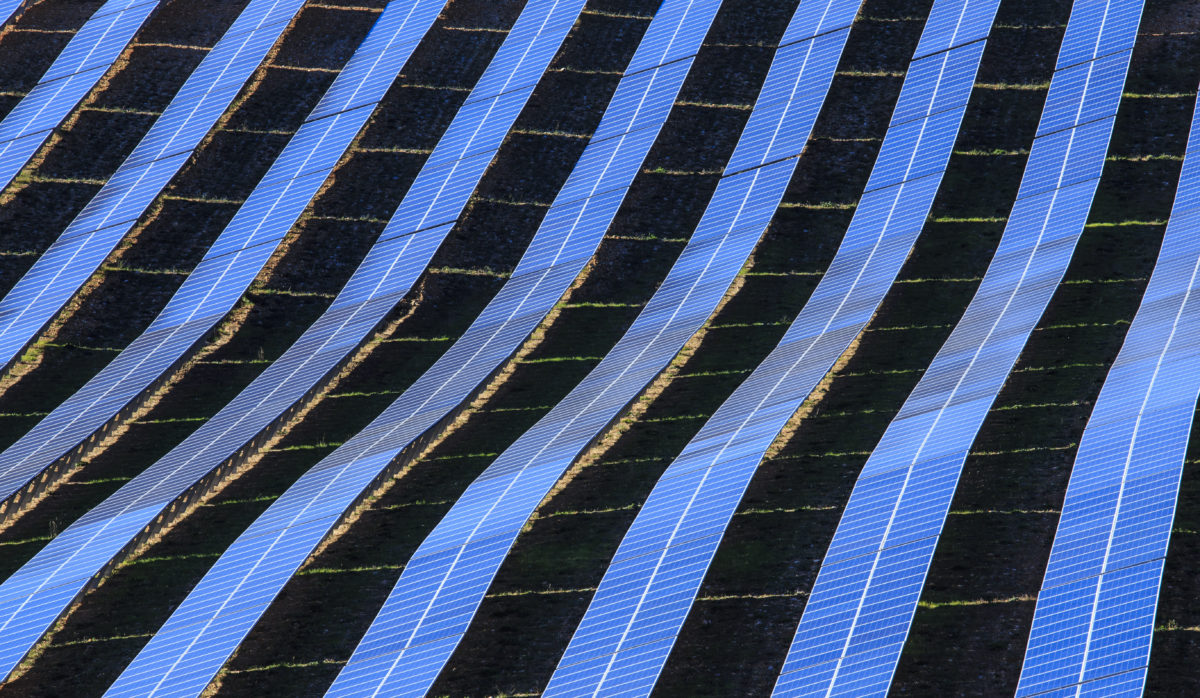Three major solar power supply deals in Latin America this week illustrate the enduring popularity of PV despite a bar on procurement rounds, as seems to be in place in Mexico, and with solar lagging other renewables in auctions in Brazil.
Sino-Canadian solar manufacturer Canadian Solar will supply power to the Techgen, S.A. de C.V. joint venture owned by Mexican steel manufacturer Ternium and Luxembourgois steel pipe company Tenaris, in Mexico.
Canadian will sell electricity to the industrial client under a 15-year supply contract with the power to be generated by a 103 MW solar project the PV manufacturer is building in Ojocaliente, in Zacatecas state.
The solar plant is expected to begin delivering power next year from its Canadian Solar BiHikU bifacial PV modules. Canadian said the deal is its first power purchase agreement (PPA) in Mexico, where it has secured 438 MW of project generation capacity under a procurement program which appears to have been halted.
Brazil
Miami-based clean energy developer Atlas Renewable Energy will sell solar power to British mining company Anglo American plc under a 15-year supply deal, with electricity generated by the 330 MW Atlas Casablanca photovoltaic plant under construction in the state of Minas Gerais.
Anglo American will buy a total 9 TWh of solar electricity from Atlas starting in 2022, the latter said in a statement. The Atlas Casablanca project will also use bifacial modules, the developer said, without identifying the panel supplier.
Atlas Renewable Energy’s Brazilian solar project portfolio includes three facilities which are under construction and development: Juazeiro and Sertão Solar in the state of Bahia, and Sol do Futuro, in Ceará. In Latin America, the developer – owned by British investment fund Actis – owns and operates two solar plants in Uruguay: Del Litoral (which has a 17 MW generation capacity); and Naranjal (59 MW); and two in Chile: at Javiera (69.5 MW), featuring the first private PPA in the region; and at Quilapilún (110 MW). Atlas also owns the operational 67.1 MW São Pedro solar complex in Bom Jesus da Lapa in Bahia state, Brazil.
A recent study by Brazilian consultancy Greener said around 3.2 GW of unsubsidized solar project capacity had been permitted for commercial operation in the country and was at an advanced stage of development.
Dominican Republic
Mining company Falconbridge Dominicana (Falcondo) has agreed to buy solar power from local provider Empresa Generadora de Electricidad Haina, S.A. (EGE Haina).
The energy will be supplied by the 120 MW Sunflower Solar Park which EGE is planning in the Yaguate municipality in the San Cristóbal province of the Dominican Republic.
“With this agreement, Falcondo will replace part of the thermal energy it uses in its facilities with renewable energy and will thus become the first mining company in the Dominican Republic to use renewable energy in its operations,” the miner said. No further details were disclosed about what is believed to be the first private solar PPA in the Caribbean country. The solar plant is expected to come online at the beginning of next year.
“The project will include the installation of some 300,000 photovoltaic modules, a 150 MVA [megavolt ampere] power substation and a 10km long transmission line that will operate at 138 kV,” Falconbridge added.
The Dominican Republic had around 166 MW of installed solar generation capacity at the end of 2018, according to the International Renewable Energy Agency, and another 100 MW has come online in recent months with the addition of two large solar parks. The country’s largest PV project is a 67.5 MW solar facility. The country also boasts several megawatts of small scale solar capacity.
This content is protected by copyright and may not be reused. If you want to cooperate with us and would like to reuse some of our content, please contact: editors@pv-magazine.com.




2 comments
By submitting this form you agree to pv magazine using your data for the purposes of publishing your comment.
Your personal data will only be disclosed or otherwise transmitted to third parties for the purposes of spam filtering or if this is necessary for technical maintenance of the website. Any other transfer to third parties will not take place unless this is justified on the basis of applicable data protection regulations or if pv magazine is legally obliged to do so.
You may revoke this consent at any time with effect for the future, in which case your personal data will be deleted immediately. Otherwise, your data will be deleted if pv magazine has processed your request or the purpose of data storage is fulfilled.
Further information on data privacy can be found in our Data Protection Policy.